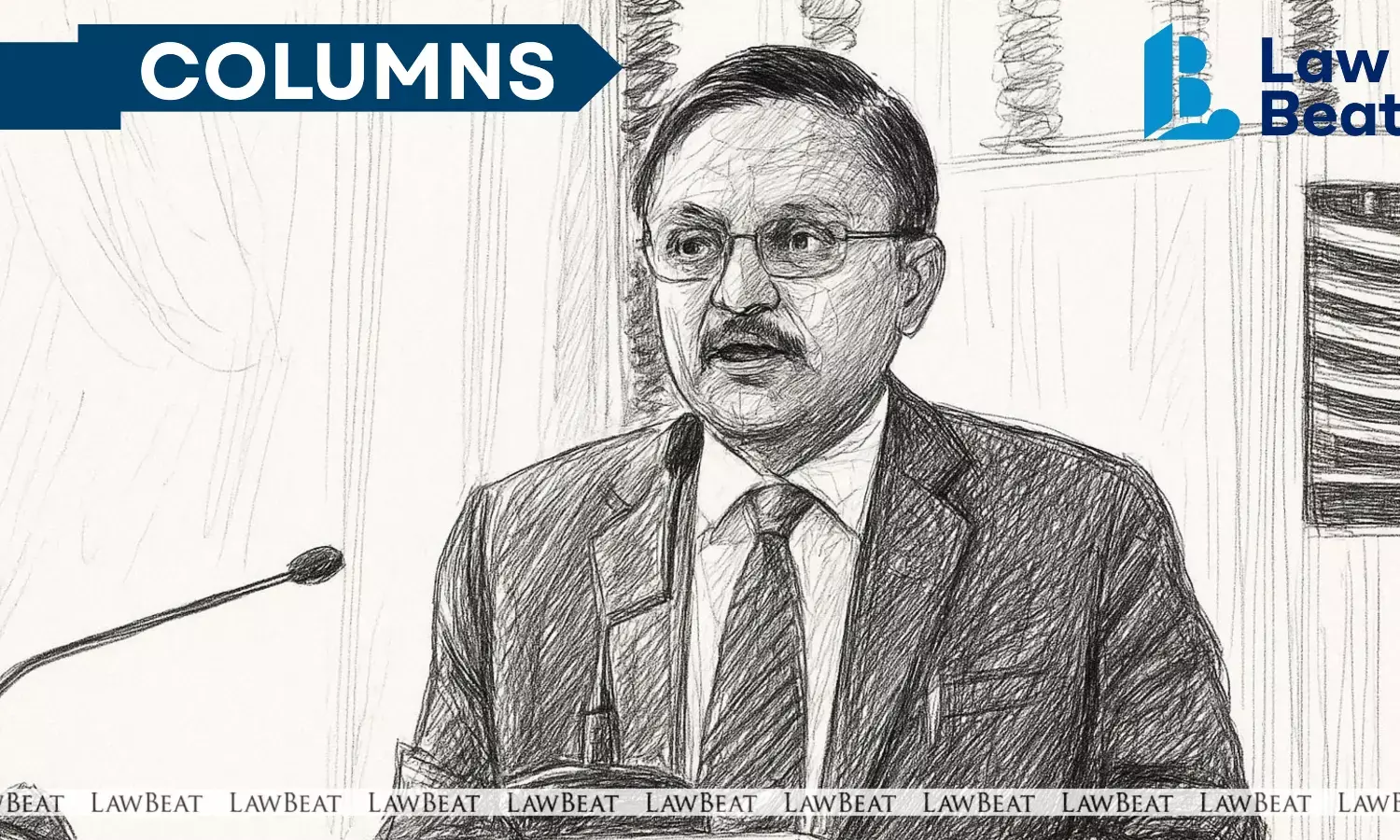Dear Justice Abhay S. Oka, The Environment Deserves Consistency, Not Sermons

Justice Abhay S. Oka
When a judge steps out of a judgment and into a sermon, especially around a Hindu festival, the line between judicial restraint and public moralising begins to fade.
In a recent address, former Supreme Court judge Abhay S. Oka observed that no religion permits harming the environment and that bursting firecrackers, using loudspeakers or immersing idols in polluted waters cannot be defended as religious practice. He added that courts must show “zero tolerance” for environmental law violations and should not be swayed by popular or religious sentiments. The remarks, delivered at a climate-justice themed talk in Delhi.
There is nothing to dispute in principle. However, the pattern is not unfamiliar. Appeals for restraint in the face of the environment surface most vocally around October and November and are framed through Diwali. The same intensity is rarely directed at other mass celebrations that impose measurable environmental burdens. That imbalance, rather than the science, is what unsettles public perception.
Fireworks are not unique to Diwali. Global studies have consistently recorded steep, short-term spikes in fine particulate matter on New Year’s Eve across cities such as London, Sydney and New York, where midnight displays push PM2.5 levels to several times the daily average. In Europe, air-quality agencies routinely issue next-day alerts after celebrations, citing transient but extreme pollution loads from fireworks and crowd-related traffic. The phenomenon is universal, but the regulatory focus often is not.
Large political rallies add further environmental stress through amplified noise, traffic emissions and the tonnes of litter left behind. Municipal data in India repeatedly show costly post-event clean-ups and persistent breaches of noise norms in dense urban zones. If environmental messaging must be public and moral in tone, there is no principled reason for that scrutiny to single out festivals alone.
Environmental obligations also extend beyond Hindu observances. During Bakri Eid, civic bodies across Indian cities grapple with a surge of animal waste, offal and blood entering drains and open spaces. Reports from Mumbai, Hyderabad and Lucknow have highlighted clogged sewers, contaminated water channels and public-health risks from inadequate waste segregation. Fact remains that environmental costs accompany all large-scale rituals and must be managed with equal seriousness.
Amid this landscape, the judicial voice carries special significance. Justice Oka is respected for procedural discipline and institutional rigour, known being a stickler for discipline in his courtroom. Precisely for that reason, public homilies on selective occasions feel discordant. Judges, more than any other actors, must safeguard the perception of neutrality both inside and outside court. When commentary outside judgments aligns repeatedly with one festival or faith, the optics eclipse the substance. Citizens who already exercise restraint require no reminders, and those inclined to disregard rules are seldom influenced by sermons. The result is alienation, and typically of one side.
A steadier course is possible. Courts can confine pronouncements to orders, while legislatures and civic bodies can enforce neutral, evidence-based standards. Limited cracker windows, decibel caps, zoning for loudspeakers, strict waste-management protocols for idol immersion as well as animal remains, and clear enforcement during rallies and New Year events would all achieve the intended balance without prejudice. The rule of law commands respect when it is applied evenly, the same standard, the same season, the same sanction.
As the anniversary of the Ram Janmabhoomi judgment approaches, the reminder endures that faith and constitutionalism need not stand opposed. That verdict embodied a balance between belief and legality. Public speech from the judiciary should aim for the same equilibrium. Equal silence or equal voice is not is what neutrality sounds like.
